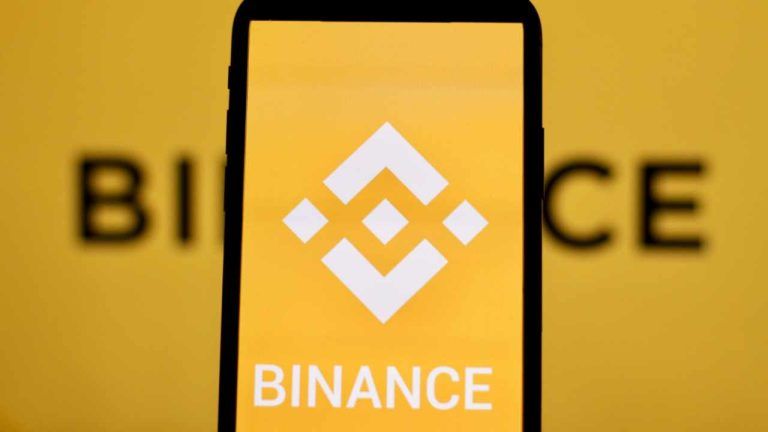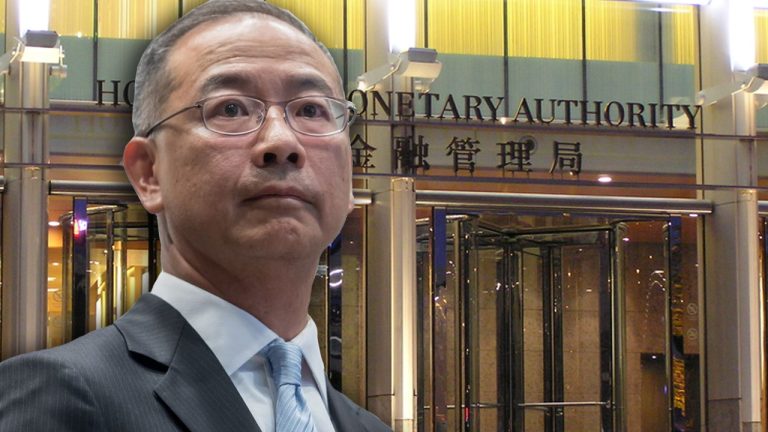 Crypto exchange Binance has launched its One Click Buy and Sell (OCBS) service in Africa, enabling users in Ghana, Tanzania, Uganda, and Zambia to buy and sell cryptocurrencies via mobile money accounts. This initiative aims to enhance financial inclusion, particularly for the unbanked and underbanked populations. Binance Expands Services in Africa, Boosting Crypto Accessibility Cryptocurrency […]
Crypto exchange Binance has launched its One Click Buy and Sell (OCBS) service in Africa, enabling users in Ghana, Tanzania, Uganda, and Zambia to buy and sell cryptocurrencies via mobile money accounts. This initiative aims to enhance financial inclusion, particularly for the unbanked and underbanked populations. Binance Expands Services in Africa, Boosting Crypto Accessibility Cryptocurrency […]
Commodity tokenization would enable African countries — such as Ghana and Botswana — an opportunity to empower themselves without relying on international aid.
In my youth, amid Ghana’s cocoa farms, I walked with my grandfather, a soldier turned farmer. He shared how these beans fueled our nation’s pride and economy. As the digital age unfurls, I often wonder: Could the modern marvel of crypto tokenization be the change my grandfather and countless cocoa farmers need?
Despite their vast agricultural and mineral wealth, many African countries face issues such as limited access to global markets, unfair trading conditions, lack of transparency in transactions and susceptibility to market manipulation. These challenges hinder economic growth, perpetuate poverty and prevent many Africans from realizing their full potential.
For decades, Africa’s economic potential has been stifled by external forces with vested interests. Colonial-era tactics of economic control might have faded, but modern neocolonialism is subtly pervasive. It thrives through unfair trade agreements, economic policies dictated by global financial powerhouses and a sheer lack of transparency in international dealings.
Related: An ETF will bring a revolution for Bitcoin and other cryptocurrencies
Take, for instance, Ghana’s government under President Nana Akufo-Addo, which has procured $3 billion in loans from the International Monetary Fund since 2017. While these loans might have temporarily filled coffers, they also deepened the country’s indebtedness.
Instead of seeking IMF loans, Akufo-Addo could have championed commodity tokenization. Tokenizing Ghana’s key commodities — such as gold, cocoa and oil — on the blockchain would create significant economic opportunities. In 2022, Ghana produced an estimated 3.7 million ounces of gold, valued at $6.7 billion; a record 689,000 tonnes of cocoa, valued at $1.65 billion; and produced oil at a rate of approximately 150,000 barrels per day.)
Considering the numbers, it’s conceivable that such an initiative in Ghana could enhance trade volumes for these commodities by several billion dollars. With the current market prices being $1,909 per ounce for gold, $3,340 per tonne for cocoa, and $82 per barrel for oil — and the possibility of significantly reduced transaction fees through tokenization, which could be as much less than traditional avenues, according to the Boston Consulting Group — the resultant economic activity from global trading could substantially increase Ghana’s revenue.
#Tokenization will help drive Blockchain to mass adoption n there’s over $100 TRILLION in Assets ready to be tokenised $QNT $CSPR $RIO are all pioneers in this sector
— ConstructionTrader.eth (@C_Traderz) August 14, 2023
Act Accordingly #Bitcoin #eth #QNT #CSPR #RIO pic.twitter.com/9qutoi1jKU
Tokenizing commodities, specifically Ghana’s gold reserves, presents a fresh avenue to drive the economy forward. Let’s delve into what it means: Ghana could use its physical gold to back digital tokens, like the decentralized stablecoin Dai (DAI), which is backed by several real-world assets. These tokens, anchored by tangible gold, become a globally recognized digital currency.
Why would anyone buy this digital currency backed by gold? Investors and countries looking for a stable digital currency would be attracted. This isn’t just a digital number — each token holds the value of real gold. It’s a way for investors to hold gold without the physical constraints, making it especially attractive in a digital age.
How would this diversify Ghana’s revenue streams? Well, tokenizing opens up new avenues for income. Traditional gold sales remain, but now there’s an additional stream: digital gold sales. Each time a token is bought, Ghana benefits. Plus, the nation can also introduce fees or premiums on these digital transactions.
Lastly, the move would place Ghana at the digital forefront. With the rise of digital economies, being a pioneer in such initiatives could be a game-changer, allowing Ghana to dictate its economic narrative in the digital realm.
The potential revenue from tokenized commodities, if explored, could have provided a viable alternative to borrowing sprees. Consider Ghana’s finance minister, Ken Ofori-Atta. His policies lean on taxing impoverished citizens. It’s baffling that in a rapidly advancing digital age, establishing a clear regulatory framework for crypto technologies hasn’t been a priority. Could this hesitancy stem from a fear of losing control over traditional financial power structures? Or is it simply a lack of foresight?
Moreover, international institutions like the World Bank are exhibiting inertia when it comes to promoting innovations like crypto tokenization. Why do they appear keener on advancing loans than fostering an environment that encourages self-sustainability through technology? Do they have underlying motives that prioritize their interests over Africa’s genuine development?
The promise of blockchain technology offers a beacon of hope to address these injustices. By adopting blockchain, countries like Ghana can ensure a level of transparency where every transaction is recorded and remains unalterable. This transparent approach will serve as a formidable weapon against corruption and illicit financial flows, and will be a step toward better governance.
Tokenization of commodities via blockchain also makes direct trade possible, effectively removing the need for middlemen who, historically, have pocketed undue profits. This ensures that farmers and producers earn their rightful share.
Rather than being dependent on external financial juggernauts, a decentralized financial system might pave the way for greater self-reliance, while also curtailing the overarching influences of neocolonial interests. Furthermore, the potential of tokenized commodities showcases the vast opportunities blockchain presents in introducing new revenue avenues, diminishing external debts and uplifting the economy on the whole.
Ghana could similarly offer to back DAI with its gold reserves. Botswana could do the same with its diamond reserves. These commodities, which traditionally have been undervalued or traded suboptimally, could now generate considerable revenue. By tokenizing these assets, Ghana could not only sell its gold at international market rates but also introduce a tokenization premium and fee, which could be a whole new revenue stream.
Related: Worldcoin: Should you let Sam Altman scan your eyeballs?
If the actions of companies like Goldman Sachs and BackRock are any indication, tokenization could be a big market opportunity. Embracing blockchain could add trillions to the continent. It could spur job creation, increase investment, and so much more.
However, to realize this potential, there is a need to address challenges in logistics, including storage, transport and tax considerations. Trust and security are also paramount, potentially requiring third-party audits from reputable globally recognized firms. Audits from companies like KPMG or PwC would lend significant credibility and assurance to the entire tokenization process, bolstering global investor confidence in the integrity and security of Ghana’s tokenized commodity market.
If Ghana grants visionary crypto entrepreneurs a strong regulatory regime, blockchain-driven growth could spearhead an economic revolution in their country. That revolution could have a ripple effect across the continent, with or without African governments that have woefully failed their people. To me, this is more than just speculation. It’s a call for reflection — and for action.
This article is for general information purposes and is not intended to be and should not be taken as legal or investment advice. The views, thoughts and opinions expressed here are the author’s alone and do not necessarily reflect or represent the views and opinions of Cointelegraph.

Cointelegraph’s Elisha Owusu Akyaw shares how cryptocurrency is changing the financial landscape in Africa — and the opportunities and challenges that come with it.
The cryptocurrency space has no shortage of skeptics. While many people criticize the environmental impact of proof-of-work blockchains or the proliferation of scams, one particular argument against crypto often stands out: Blockchain has no real use cases.
Every two weeks, Cointelegraph’s The Agenda podcast breaks down this critique and explores the various ways blockchain and crypto can help everyday people.
On this week’s episode of The Agenda, hosts Jonathan DeYoung and Ray Salmond chat with Elisha Owusu Akyaw, Cointelegraph’s own social media specialist and host of the Hashing It Out podcast, to break down how Africans are using crypto to strengthen financial inclusivity and potentially turn countries into hubs of technological innovation.

According to Akyaw, crypto offers a more convenient, affordable way to send money both regionally and around the world. “Western Union, MoneyGram and all of these money transaction firms or rails have made millions from Africa for so long” by charging high fees, said Akyaw, whereas the cost required to send money via crypto is significantly lower.
Bitcoin (BTC) also offers a better store of value for most Africans than local fiat currencies, Akyaw argued. Speaking on his own experience of living in Ghana, he said that “you can buy Bitcoin and keep it for the next one year or six months. It’s a better hedge against inflation than keeping the Ghanaian cedi.”
Finally, the crypto industry is opening up new opportunities on the continent. “At every point of development, Africa has been left behind,” said Akyaw. But the global nature of the industry and the fact that it’s still in its early development present a unique opportunity to participate and benefit from its growth.
“This is one of the first times where there is a big shift happening and Africans are able to contribute. Africans are able to benefit directly from the shift that is happening without it having to pass through an intermediary, which is usually the state. And I think it’s an amazing thing.”
When asked about what it would take for countries in Africa to become “magnets for crypto builders or a new kind of Silicon Valley,” Akyaw pointed to two factors that need to be improved for developers, startups and fintech companies to want to make the continent their home: regulation and infrastructure.
Umm. So I met @jack at the @AfroBitcoinOrg Conference.
— Elisha - GhCryptoGuy (@ghcryptoguy) December 5, 2022
I have been smiling since pic.twitter.com/SJKjkU6nAb
The majority of African countries lack proper regulation, according to Akyaw, while also condemning the use of crypto. This means companies are often unable to obtain licenses to set up shop and residents are dissuaded from interacting with Web3 protocols and firms:
“You can’t get a license. You can’t work with a bank in the country. You can’t do a lot of things. So, it makes no sense for you to come in.”
The other thing that needs to change, said Akyaw, is that electric grids need to be more stable and internet needs to be more reliable. “If you want a lot of Big Tech companies to come in, they must have great, 24/7 electricity. Internet must be awesome because a lot of what we do in the crypto space is virtual.”
To hear more from Akyaw’s conversation with The Agenda — including his backstory, whether outside funding has any negatives and the potential near-term future of crypto in Africa — listen to the full episode on Cointelegraph’s Podcasts page, Apple Podcasts or Spotify. And don’t forget to check out Cointelegraph’s full lineup of other shows!
Magazine: Unstablecoins: Depegging, bank runs and other risks loom

Eche Emole, the co-founder of Afropolitan, explains how the nation-state experiment has failed, especially in Africa, and how blockchain can be used to reimagine a new state.
On episode 12 of Cointelegraph’s Hashing It Out podcast, Eche Emole, co-founder of Afropolitan, explains what it means to build a country on the blockchain.
From an event and media company, Afropolitan has transitioned to a blockchain-based state of Africans on the continent and in the diaspora. Emole, an African in the diaspora with a political science, philosophy and law background, believes the nation-state experiment has failed in Africa. According to him, the existing state structures have stifled the development of people on the continent.
“We truly believe that the nation-state experiment has failed for Africans globally. It has yielded nothing but poverty, weakness, corruption, and it very stifling.“
The co-founder of Afropolitan explains that the inspiration to build a network state comes from an article titled “How To Start a New Country,” written by former Coinbase chief technology officer Balaji Srinivasan, who has recently been in the news for a $2 million bet on Bitcoin reaching $1 million in 90 days. Another piece of literature that inspired the creation of Afropolitan is the first of the federalist papers, published by Alexander Hamilton.
According to Emole, the plan to build Afropolitan will occur in four phases: building a community, offering governance as a service, becoming a minimum viable state and securing land for the real-life version of the state, featuring a Chinatown and an embassy.
Emole believes that another reason why Afropolitan is necessary is the lack of opportunities that exist for Africans. Emole explains that the issue is a two-part problem beginning from the point where most Africans are not in the rooms where major decisions are being made. Moreover, the lack of cross-industry communication prevents collaborations between Africans in a way that solves problems.
Related: US Bank collapse — Is crypto being targeted?
Elisha (GhCryptoGuy) and Emole also discuss the hurdles of creating a nation on the blockchain, the future of crypto in Africa and Vitalik Buterin’s visit to the continent.
Listen to Hashing It Out Episode 12 on Spotify, Apple Podcasts, Google Podcasts or TuneIn. You can also check out Cointelegraph’s full catalog of informative podcasts on the Cointelegraph Podcasts page.

Bitcoin Lightning Network adoption receives a boost with the launch of USD payments and decentralized social media platform, Nostr.
Bitcoin’s Lightning Network (LN) capacity recently surpassed an all-time high of 5,000 BTC.
The Lightning Network is a neutral protocol built on top of Bitcoin and currently it does not have a “native” token attached to it like many decentralized finance platforms.
Although the Lightning Network’s total liquidity is less than 0.5% of the ETH in DeFi contracts, the uptrend in Bitcoin’s LN capacity versus a downtrend in the amount of ETH locked in smart contracts is encouraging for LN development.

While the liquidity on the LN has been rising consistently, the number of channels on the peer-to-peer network dropped drastically in November following the FTX collapse. It could be due to an exodus of miners operating LN nodes besides running mining clients.
However, the likely end of miner capitulation and the rise of Bitcoin-based applications like NFTs could mark an end to LN channel capitulation. Since the start of 2023, over 2,000 new channels have been added to the network.

A Valkyrie Investments report stated that LN adoption was picking up speed in emerging markets like South America and Africa, primarily due to efforts of the LN mobile payment application, Strike.
In December 2022, the firm launched an LN-based remittance service in Africa. The service offers no-cost transfers from the U.S. to Africans in Nigeria, Ghana and Kenya. Later, Strike announced a similar program in the Philippines.

More recently, the firm announced dollar payments using LN, where users can potentially send dollars from the Strike’s cash balance to savings and VISA-enabled accounts. The app will convert USD to BTC in the background and convert to USD at the destination. Since LN is fast and cheap, the risk due to Bitcoin’s price volatility is minimal.
The cost of international payments from the U.S. can rise as high as $45 per transaction, with transfers taking hours or sometimes days. Thus, users could start preferring Strike-based payments over traditional remittance channels.
A recent report from Marty Bent found that the LN payments have risen this year on the top Lightning Network wallets, Wallet of Satoshi. Moreover, a podcasting platform, Podcasting 2.0, that accepts LN payments also recorded an uptick in tips sent to creators.
Related: Retail giant Pick n Pay to accept Bitcoin in 1,628 stores across South Africa
Another factor influencing the adoption of LN is the launch of Nostr. According to the protocol's Github page, Nostr is a simple, open protocol that enables global, decentralized and censorship-resistant social media. The protocol allows social media applications to be built on it.
Damus, a Twitter lookalike, implements Nostr with an IOS and Android application. The idea of an open and free social media network reverberates the strongest in the crypto space. Bitcoin pioneers like Jack Dorsey and Adam Back have strongly endorsed Nostr.
Besides similarities in ideology, Nostr can boost LN adoption as Damus has integrated various LN wallets like Wallet of Satoshi, Strike, BlueWallet, and others. A report from LN analyst, Kevin Rooke, cited that over 600,000 users signed up on Nostr. This could help onboard users to LN as Nostr inherently supports the Bitcoin payment network through Nostr Zap.
The Lightning Network is a neutral protocol built on top of Bitcoin, with no token attached to it, avoiding speculation. There is a potential for yield for LN nodes as fees for facilitating transactions and providing liquidity. However, in the current state, the earnings are negligible. Hence, the Lightning Network's growth appears organic and well-positioned to become the leading global payment network, which prominent personalities in this space have predicted.
The views, thoughts and opinions expressed here are the authors’ alone and do not necessarily reflect or represent the views and opinions of Cointelegraph.
This article does not contain investment advice or recommendations. Every investment and trading move involves risk, and readers should conduct their own research when making a decision.

Despite a challenging year for the crypto industry, nearly 40% of respondents indicated a plan to purchase cryptocurrencies like Bitcoin in 2023.
Despite the gloom of the ongoing cryptocurrency winter, coupled with failures of crypto giants like FTX, the community appears to remain bullish about crypto, according to a new survey.
Crypto markets saw a massive sell-off in 2022, with the total market cap plummeting nearly 70% since Bitcoin (BTC) reached its all-time highs at $69,000 in November 2021.
But this didn’t prevent investors from buying more cryptocurrency, as 41% of respondents said they purchased crypto in 2022 in an online survey by Blockchain.com.
Released on Dec. 22, the survey has polled more than 40,000 people globally who visited Blockchain.com Explorer website, which is one of the world’s largest crypto websites in terms of traffic. The study is titled “Crypto Confidence: A Survey on Investor Sentiment” and was conducted between Nov. 28 and Dec. 9, 2022.
According to survey results, a significant share of people is also willing to continue to buy cryptocurrency next year. Despite a challenging year for the crypto industry, nearly 40% of respondents indicated a plan to purchase cryptocurrencies like Bitcoin in 2023.
Additionally, about 40% of respondents said they will talk about crypto around the holiday table this season, which is considered to be a sign of growing awareness.

Apart from general investor sentiment, the survey also provides some geographic insights, with Brazil, Nigeria and Ghana becoming the most bullish countries.
Related: Turkey has an obsession with crypto — Specifically Dogecoin: Study
As such, 50% of respondents from Brazil said they bought crypto in 2022, with 50% also planning to buy digital coins next year. 50% of Nigerians said they purchased crypto this year, while as many as 60% of Ghana respondents said they expect to buy crypto in 2023.
In contrast, Germany and Italy emerged as one of the most skeptical countries in terms of investor sentiment to crypto. Only 31% of Italian respondents said they purchased crypto this year, with 29% planning to purchase next year. Just 34% of respondents from Germany bought cryptocurrency in 2022 and 30% plan to do so in 2023.

On stage at AfroBitcoin, Strike CEO Jack Mallers announced plans to improve remittance payments into Africa thanks to the Lightning Network on Bitcoin.
The Lightning Network has struck Ghana, Kenya and Nigeria. During a conference in Ghana, Strike CEO Jack Mallers announced that the Bitcoin (BTC) payments company has partnered with the mobile app Bitnob to facilitate payments into Africa.
Mallers made the announcement on stage at AfroBitcoin, a Bitcoin conference in Ghana's capital city of Accra. He stood alongside Bernard Farah, the Nigerian CEO of Bitnob, following a short presentation on how it works.
Money transfers into Africa take advantage of the Lightning Network, the layer-2 payments network built atop Bitcoin. The feature is called “Send Globally,” and it enables instant, low-cost payments to Africa.

The feature does not require people to use Bitcoin themselves, Bitnob CEO Bernard Parah explained on stage. The no-transaction-fee feature is currently available to Africans in Nigeria, Ghana and Kenya. By comparison, remittance services such as Wise take a small commission, while Western Union can charge upwards of 10% for money transfers.
Dollar payments are instantly converted into naira, cedi or shillings (currencies in Nigeria, Ghana and Kenya, respectively) and are deposited directly to recipients' banks, mobile money, or Bitnob accounts.
Related: Subway accepts Bitcoin, so users can get a sandwich on the Lightning Network
Mallers compared the overall experience to PayPal's Venmo app because it’s an instant peer-to-peer payment. Venmo is a mobile app that allows instant and frictionless payments between United States customers. Mallers said the Lightning Network has “just achieved dollars to Naira, Naira to dollars."
This story is developing and will be updated with new info.
 In this week’s hottest stories from Bitcoin.com News: the Ghanaian cedi’s recent slide to a new low against the USD, Rich Dad Poor Dad author Robert Kiyosaki weighs in on Saudi Arabia’s move to join the BRICS nations, the United States Internal Revenue Service updates tax filing instructions for crypto, and more. Report: Ghanaian Cedi […]
In this week’s hottest stories from Bitcoin.com News: the Ghanaian cedi’s recent slide to a new low against the USD, Rich Dad Poor Dad author Robert Kiyosaki weighs in on Saudi Arabia’s move to join the BRICS nations, the United States Internal Revenue Service updates tax filing instructions for crypto, and more. Report: Ghanaian Cedi […] Following the Bank of England explaining that it would be meddling in U.K. bond markets and the Bank of Japan defending the yen in the foreign exchange market last week, the Hong Kong Monetary Authority (HKMA) revealed it intervened in forex markets on Wednesday. Hong Kong’s central bank detailed that it interfered in forex markets […]
Following the Bank of England explaining that it would be meddling in U.K. bond markets and the Bank of Japan defending the yen in the foreign exchange market last week, the Hong Kong Monetary Authority (HKMA) revealed it intervened in forex markets on Wednesday. Hong Kong’s central bank detailed that it interfered in forex markets […] No privacy. No property. No prosperity. If you follow the news, you’ve seen the trend — putting legal limits on cash transactions, the emergence of surveillance-oriented, central bank digital currencies (CBDCs), and more recently, crypto mixing platform Tornado Cash being sanctioned by the United States Treasury. There is a new wave of propaganda increasingly demonizing […]
No privacy. No property. No prosperity. If you follow the news, you’ve seen the trend — putting legal limits on cash transactions, the emergence of surveillance-oriented, central bank digital currencies (CBDCs), and more recently, crypto mixing platform Tornado Cash being sanctioned by the United States Treasury. There is a new wave of propaganda increasingly demonizing […]